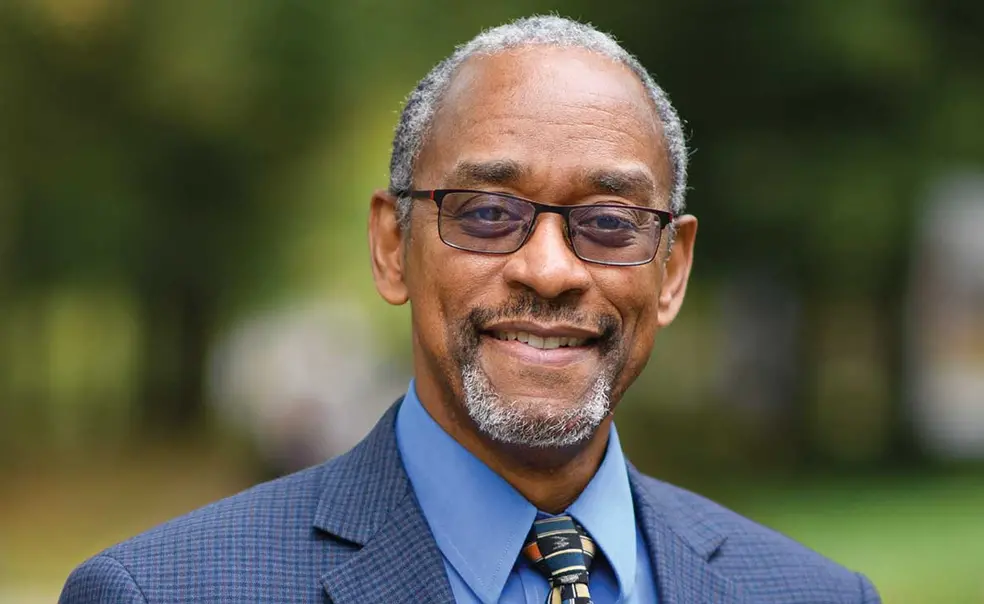Q&A: Historian Keith Wailoo on How Pandemics Change Everything
‘The current pandemic is frightfully familiar,’ Wailoo says
From the infamous Black Death in 14th-century Europe to the emergence of HIV/AIDS in the 1980s, pandemics have menaced human civilization for centuries. Keith Wailoo, the Henry Putnam University Professor of History and Public Affairs, has written widely about intersections among health policy, politics, and race. His latest book, Pushing Cool: Big Tobacco, Racial Marketing, and the Untold Story of the Menthol Cigarette (University of Chicago Press) will be published in November.
Wailoo sees many parallels between COVID-19 and its grim predecessors. PAW spoke with him about ways that pandemics can change society, the impact of politicized responses to pandemics, and what future historians might find when they revisit the COVID-19 era.
How is COVID-19 similar to past pandemics, and how is it different?
Any time there is a phenomenon of large-scale illness and mortality brought about by a novel and unexpected disease, there are questions about causation, about the biology of the disease, about how to care for patients, about how to prevent the disease, and about who is to blame. The disease becomes an occasion for debating broader political topics, such as the role of government in our lives. We’ve seen this happen with cholera, influenza, polio, HIV/AIDS, Ebola, and now COVID-19. In that sense, the current pandemic is frightfully familiar.
One way that COVID-19 differs from [some] other pandemics is that asymptomatic transmission plays such a large role. The fact that you can appear healthy, yet still be transmitting disease, has created a particular set of challenges [for health policy].
What long-term changes might we expect to see as a result of the current pandemic?
Pandemics can transform social behavior. Tuberculosis prompted aggressive public-health campaigns to stop spitting. HIV/AIDS brought the previously taboo topic of “safe sex” into mainstream conversation. With COVID-19, I suspect that mask-wearing and social distancing will persist as long as there is still a fear of contagion.
Pandemics can also reshape entire economic systems. The plague in 14th-century Europe caused massive depopulation, which made feudalism less viable and laid the foundations for capitalism. With COVID-19, we’ve seen the rise of the “Zoom economy.” Without question, remote work and communication will persist, and may even become the new norm.
The pandemic has become very politicized in the United States. Has this happened before, and what were the consequences?
When the smallpox vaccine was developed in the 1870s, there was a debate about whether vaccination could be mandated. It culminated in 1905 in a major Supreme Court case, Jacobson v. Massachusetts, which upheld the right of the state of Massachusetts to mandate the smallpox vaccine. The Court recognized that public health came before individual liberty. Recently, a federal appeals court cited Jacobson in a case confirming the right of a university to require vaccines for all students, and the Supreme Court upheld its ruling.
In spite of all the debates around vaccination, the story of smallpox is one of global eradication. Broadly, Americans and people around the world look to science to solve the problems of these pandemics. One can also conclude that the role of federal, state, and local governments in coordinating vital public-health tasks will continue to be enhanced in the wake of COVID-19, because the private sector is not going to guide us out of this disaster.
COVID-19 has had a disproportionate impact on non-white communities in the United States. Moving forward, is there any hope that policymakers will pay more attention to these health disparities?
In African American, Latino, and Native American communities, we’ve seen inequalities in exposure to the virus, because people in those communities are more likely to be essential workers and to live in multi-generational households. We’ve seen inequalities in access to health care, and inequalities in rates of illness and death. Once a vaccine became available, there were inequalities in access to vaccines early on, and then inequalities in issues like trust in government that continue to feed vaccine hesitancy —
although racial and ethnic gaps in vaccination have narrowed dramatically in recent months, challenging the link between ethnicity and mistrust in government.
Learning more about these existing inequalities gives us an opportunity to respond more effectively. For example, some states have rolled out the vaccine with an eye towards equity, so it’s not only the elderly who have been given priority, but also people who live in communities with many essential workers or crowded living conditions.
What do you think future historians will be drawn to when they look back on the current pandemic?
I’ve been tracing the history of the vaccine, from the initial hope that it would be possible, to the different emergency approvals of vaccines, the discussions of their relative efficacy, the question of whether the United States would share this resource with the world, and so on. Although Americans are used to criticizing the government, there’s now an acknowledgment of the vital role of federal and state governments in coordinating the response to this pandemic. In my lifetime, I’ve never before seen a phenomenon where there’s a vital resource, a vaccine, that is developed through the private sector with government support, and the government has then committed massive amounts of resources to make sure that every single person in the country has access to that vaccine. Over time, I think that looking at the development of the vaccine will become a lens through which we can understand how COVID-19 has changed society.
Interview conducted and condensed by Joanna Wendel ’09










No responses yet